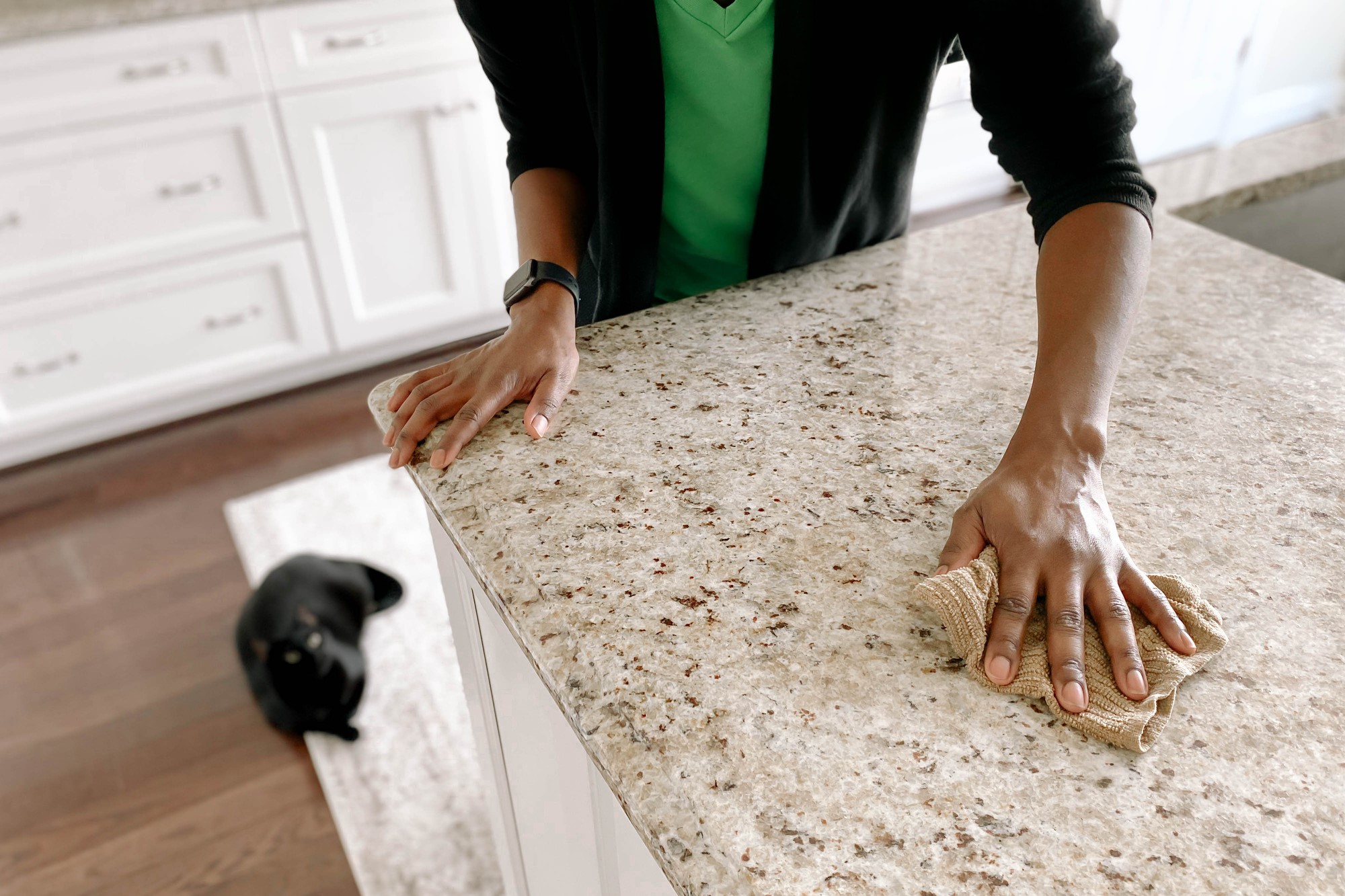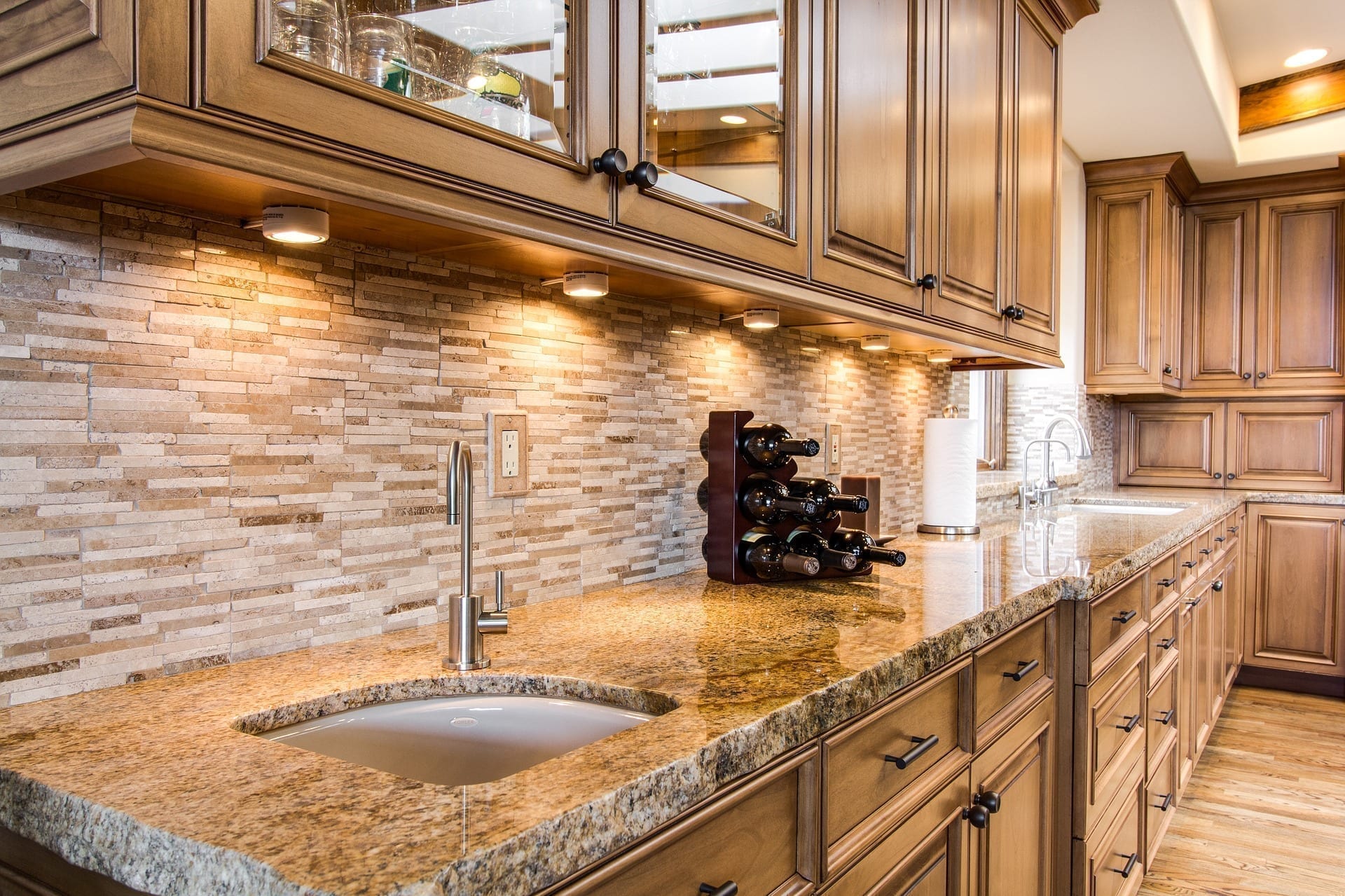How do i clean granite countertops – Discover the secrets to keeping your granite countertops pristine in this comprehensive guide. From everyday cleaning to stain removal and maintenance, we’ve got you covered.
Granite countertops are a beautiful and durable addition to any home, but they require proper care to maintain their stunning appearance. Our step-by-step instructions and expert tips will help you keep your granite countertops looking their best for years to come.
Cleaning Methods

Maintaining the pristine condition of granite countertops requires a proper cleaning regimen. By adhering to the following steps, you can effectively remove dirt, grime, and stains while preserving the integrity of the surface.
It is crucial to opt for non-abrasive cleaners and soft cloths during the cleaning process. Abrasive materials can cause scratches and dull the surface of the granite. Likewise, rough cloths may trap particles that can scratch the countertop.
Using Common Household Products
- Wipe Down the Surface:Begin by wiping down the countertop with a damp microfiber cloth to remove loose debris.
- Create a Cleaning Solution:In a spray bottle, combine warm water with a mild dishwashing liquid or a pH-neutral cleaner specifically designed for granite. Avoid using harsh chemicals or acidic cleaners.
- Spray and Wipe:Spray the cleaning solution onto the countertop and gently wipe it with a clean microfiber cloth. Avoid scrubbing or using excessive pressure.
- Rinse and Dry:Rinse the countertop thoroughly with clean water and dry it immediately with a soft cloth to prevent water spots.
Benefits of Using Granite-Specific Cleaning Solutions
- Optimized pH Level:Granite-specific cleaners are formulated with a pH level that is safe for granite surfaces, ensuring that the stone is not damaged during cleaning.
- Enhanced Stain Removal:These cleaners often contain ingredients that are effective in removing common stains, such as food spills and watermarks.
- Protective Barrier:Some granite-specific cleaners leave a protective barrier on the surface, which helps to repel stains and make future cleaning easier.
Stain Removal
Granite countertops, despite their durability, can occasionally succumb to stains. Identifying the type of stain is crucial for effective removal. Chemical cleaners, while potent, may require caution, while natural remedies offer eco-friendly alternatives. Understanding these options and adopting preventive measures will help maintain the pristine beauty of your granite countertops.
Common Stains and Removal Methods
- Coffee and Tea Stains:Apply a paste of baking soda and water. Let it sit for a few minutes before wiping it away with a damp cloth.
- Oil and Grease Stains:Sprinkle cornstarch or baking soda on the stain and let it absorb the oil. Brush away the powder and wipe the area with a mild dish soap solution.
- Wine Stains:Blot up excess wine immediately. Apply a paste of baking soda and water or a solution of hydrogen peroxide and water. Rinse thoroughly.
- Ink Stains:Apply rubbing alcohol or nail polish remover (test on an inconspicuous area first). Blot the stain with a cotton ball and rinse with water.
Chemical Cleaners vs. Natural Remedies
Chemical cleaners offer quick and effective stain removal, but they can be harsh on granite and may leave behind residues. Natural remedies, such as baking soda, vinegar, and lemon juice, are gentler and more environmentally friendly. However, they may require more time and effort to remove stains.
Preventing Stains
To minimize the risk of stains, seal your granite countertops regularly. Avoid placing hot pots or pans directly on the surface, and use coasters for drinks. Clean up spills promptly to prevent them from penetrating the stone.
Sealing and Maintenance

Sealing granite countertops is crucial for preserving their beauty and durability. Sealants form a protective layer that repels stains, liquids, and other potential damaging agents, ensuring your countertops remain pristine for years to come.
Applying a sealant is a relatively straightforward process. Start by cleaning the countertop thoroughly with a mild detergent and water solution. Allow the surface to dry completely before applying the sealant. Using a clean cloth or sponge, apply the sealant in thin, even coats, following the manufacturer’s instructions.
Allow the sealant to penetrate for the recommended time, typically around 15-20 minutes, before wiping off any excess with a clean cloth.
Resealing Frequency, How do i clean granite countertops
The frequency of resealing depends on several factors, including the type of sealant used, the amount of traffic the countertop receives, and the presence of acidic or staining substances. As a general guideline, resealing every 1-2 years is recommended for optimal protection.
Signs that indicate resealing is necessary include:
- Water droplets no longer bead on the surface but spread out.
- Stains are more difficult to remove.
- The countertop appears dull or faded.
Troubleshooting Common Issues: How Do I Clean Granite Countertops
Granite countertops are durable, but not immune to issues like etching, scratches, or discoloration. Understanding these problems and their solutions helps maintain the beauty and longevity of your granite surfaces.
Regular maintenance and professional cleaning are crucial to prevent issues from developing. Timely attention to minor problems can prevent costly repairs or replacements.
Etching
Etching occurs when acidic substances, like lemon juice or vinegar, come into contact with granite, causing a dull spot. To remove mild etching:
- Apply a baking soda paste (baking soda mixed with water) to the etched area.
- Cover the paste with plastic wrap and let it sit for 24 hours.
- Remove the plastic wrap and rinse the area with water.
For deeper etching, consider professional repair or polishing.
Scratches
Minor scratches can be buffed out using a granite polishing powder and a soft cloth. For deeper scratches, professional repair may be necessary.
Discoloration
Discoloration can occur due to spills or exposure to sunlight. To remove discoloration:
- Identify the cause of the discoloration (e.g., oil, food, etc.).
- Use a specialized granite cleaner or a mild detergent mixed with water to clean the affected area.
- Rinse the area thoroughly and dry it with a soft cloth.
If discoloration persists, consult a professional for further assistance.
Ultimate Conclusion
With a little care and attention, your granite countertops will continue to be a stunning focal point in your home for years to come. So what are you waiting for? Start cleaning and enjoy your beautiful granite countertops today!
